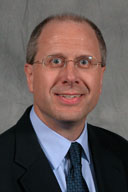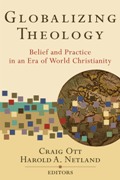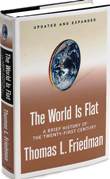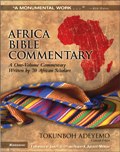
 Recently, I had a conversation with the editors of the new book Globalizing Theology, Dr. Craig Ott, & Dr. Harold Netland. The book is called Globalizing Theology: Belief & Practice in an Era of World Christianity. With 17 contributors from TEDS to Sri Lanka, Globalizing Theology delves into world Christianity's theological & methodological implications. In a globalizing world, one in which western Christianity is the minority, Globalizing Theology helps us understand how our world is changing.
Recently, I had a conversation with the editors of the new book Globalizing Theology, Dr. Craig Ott, & Dr. Harold Netland. The book is called Globalizing Theology: Belief & Practice in an Era of World Christianity. With 17 contributors from TEDS to Sri Lanka, Globalizing Theology delves into world Christianity's theological & methodological implications. In a globalizing world, one in which western Christianity is the minority, Globalizing Theology helps us understand how our world is changing.1. NSR - What was the genesis for compiling Globalizing Theology?
 Dr. Ott – In 2004, a number of missiologists & theologians came together at Trinity in honor of Dr. Paul Hiebert. (Dr. Hiebert is the distinguished professor of anthropology & mission at TEDS & author of a number of books, including Anthropological Insights for Missionaries). Under the theme of “Doing Theology in a Globalizing World,” the consultation took up a number of related issues that have been addressed by Dr. Hiebert. The papers presented at that consultation comprise the core of this book.
Dr. Ott – In 2004, a number of missiologists & theologians came together at Trinity in honor of Dr. Paul Hiebert. (Dr. Hiebert is the distinguished professor of anthropology & mission at TEDS & author of a number of books, including Anthropological Insights for Missionaries). Under the theme of “Doing Theology in a Globalizing World,” the consultation took up a number of related issues that have been addressed by Dr. Hiebert. The papers presented at that consultation comprise the core of this book.Dr. Netland – This book is also dedicated to Paul Hiebert & the kind of globalizing theology that the book calls for is what Paul advocated for several decades. It is calling for western theologians & missiologists to think in different ways about a globalizing world where most Christians are outside of the West.
2. NSR - If readers only take one idea away from this book, what would you like it to be?
Dr. Ott – We need to be listening more to one another as a global church – that’s probably the recurrent theme. We need to be learning from one another. We all, as Christians, whether American Christians or Asian, African or Latin American Christians, have blind spots. We need to be listening to one another & we live in this age of globalization where we can do it like we’ve never done it before. We have to listen to one another more & more about concerns from an ethical point of view, from a theological point of view, & how we understand & apply Scripture.
Dr. Netland – In the West, the thinking has been, if you go to other countries then you need to be concerned about issues of other cultures, contextualization dealing with other religions, & so on. In a globalizing world, these are gone. Theological education in the West, pastoral training in the West will need to be done consciously, in awareness of, the fact that we are in a globalizing world & most Christians now are outside of the West, so we are in the minority.
3. NSR – It seems that we in the West reach out to the developing world because we are better off. Do you get a sense that theologically we do the same & that we feel we have a better knowledge than those in developing nations, even though they may have equal or better understanding of some points than the West?
Dr. Netland- The idea has been that theology is something we do in the West & we take that to the rest of the world & we teach them about theology, & there is a certain amount of truth to that. But yes, in what you articulated, we do need to be a bit more humble & realize that theology is something the entire church participates in & we need to listen to non-Westerners even as they listen to us.
Dr. Ott – For the average church pastor or member, especially today, with so many short-term missionary trips, with church-to-church congregational partnerships internationally, and so on, it is all the more important that pastors & church members involved in this kind of interaction be more aware of issues that concern our brothers & sisters in the non-Western world. Yes, we do have a lot to offer, we do have many resources, but we have a lot to learn from others as well, & there can be a mutuality in those relationships as well.
4. NSR - What authors have influenced your spiritual lives?
Dr. Netland – A wide variety, including C.S. Lewis, Dallas Willard & I’m thinking spiritual formation here – St. Augustine, & Bonhoeffer.
Dr. Ott – I could ditto those & add Thomas a Kempis. I am repeatedly impressed with The Imitation of Christ. Also, the work that John Stott has done has vastly influenced me.
5. NSR - What other writers or thinkers would you recommend on the subject of Globalizing Theology?
 Dr. Netland – There are at least two sets of disciplines when you talk about globalizing theology. The first is the literature dealing with globalization & the second is the nature of theology. Speaking to globalization, Malcolm Waters’ book entitled Globalization, works by Thomas Friedman deals with globalization on an economic & political level & Peter Berger deals with the subject as well.
Dr. Netland – There are at least two sets of disciplines when you talk about globalizing theology. The first is the literature dealing with globalization & the second is the nature of theology. Speaking to globalization, Malcolm Waters’ book entitled Globalization, works by Thomas Friedman deals with globalization on an economic & political level & Peter Berger deals with the subject as well.As far as the nature of theology, the work of David Wells has influenced me greatly (No Place for Truth, Above All Earthly Pow’rs). Kevin Vanhoozer’s The Drama of Doctrine is a great work on a linguistic approach to theology. Also, Paul Hiebert’s Anthropological Reflections on Missiological Issues does well to talk about contextualization among other subjects.
Dr. Ott – Not many people are writing about this subject of globalizing theology, to be honest with you.
6. NSR - How can this book be used within the church, by pastors &/or laymen?
Dr. Netland – This is the kind of book that could be thoughtfully used in a study group. You could have a small group of pastors come together periodically to talk about it. I think there would be rich discussion that would flow from that.
Dr. Ott – The primary audience is probably the theological community – to expand the horizons & to raise the awareness that there’s a lot to be learned & we need to be involved in a global discussion. This will enrich our understanding of God, theology, mission, & so much more. At the local level, as we mentioned, people are encountering so many different cultures in their own communities, we need to be alert to some of the concerns that they are bringing in.
7. NSR – Are there 1-2 things that the non-Western church “gets” that the American church does not?
Dr. Netland – The non-Western church is not a monolithic group, but they do bring different questions. From Asia for example, what does Scripture have to say about the family unity, about ancestors. These are front & center in Asian & many African contexts, but they are not concerns that we have. Questions about poverty all over the world. Non-Western Christians frequently see things in Scripture in regards to poverty, in Luke for example, that we in the West tend to gloss over.
Dr. Ott – Two recurrent themes we hear from non-Western Christians are the problem we have in the West in our over-emphasis on rationalism & individualism. They are somewhat interrelated. We tend to look at the world in a very theoretical way, with a rational bent for things & not very relationally.
We also view things very individualistically. In our views of church, the way we change churches. What does it mean to be a community of God’s people? What does it mean to be committed to the body of Christ? Non-Western Christians have a hard time relating to those aspects of our faith & quite frankly there can be a lop-sidedness in these areas in our churches.
8. NSR - What do you see as a crucial topic facing the evangelical church at large today?
Dr. Netland – I have spent most of my life in Asia, in Japan & certainly they would say questions about Christology, how you relate to the person of Christ, especially in how that relates to other religions. What does it mean to say that Jesus is the only Savior? How do you spell out the implications of that for a Christian community within a society dominated by the Hindu, Buddhists, & other religions?
Dr. Ott – I really believe the way we go about defining the task of missions. How do we define the task of the Church living in a pluralistic world? Once again, here is where we need to be talking to one another.
9. NSR - This volume does not just point out a problem & leave it at that. There are practical suggestions for global theology conversations & how to make those possible. What are some current avenues one might take to learn & listen globally?
 Dr. Ott - One of the professors here at Trinity in the Pastoral Theology department is using the Africa Bible Commentary for his personal devotions. The Africa Bible Commentary is wonderful piece of work from African theologians. Of course, it has much in common with Western commentaries, but the perspective is the interesting aspect of this. By using a resource like this, there can be a whole new light shed on Scripture. And this is exactly what we have been talking about at the most basic level of personal devotions.
Dr. Ott - One of the professors here at Trinity in the Pastoral Theology department is using the Africa Bible Commentary for his personal devotions. The Africa Bible Commentary is wonderful piece of work from African theologians. Of course, it has much in common with Western commentaries, but the perspective is the interesting aspect of this. By using a resource like this, there can be a whole new light shed on Scripture. And this is exactly what we have been talking about at the most basic level of personal devotions.Dr. Netland - It can happen & should happen on many levels. On the level of church-to-church relationships, or relationships among individual Christians, given the amount of travel & internet access today, it is possible for people to have relationships with Christians literally around the world. As part of that, we need to develop the discipline of communicating with them, not simply exporting our knowledge of how to do things.
Another level would be the ore institutional academic level. We have lots of good seminaries & Bible colleges, large libraries, fairly good resources for doing theology. Much of the rest of the world has very, very little. That is a practical question which needs to be addressed. Others are language barriers; do we continue work in English, or use Korean? Who funds these projects? Overall, there are good things happening.
10. NSR - How do issues of practical theology--"doing" church; planting churches; views of leadership, success, or understanding of the church's primary mission--differ in other parts of the world from the US?
Dr. Ott – I think most non-Western church planters, missionaries probably have a more balanced way of looking at the relationship of faith & practice. They have a more balanced way of meeting physical, psychological, social as well as spiritual needs. In a good way – not underplaying spiritual needs, but there seems to be a greater sensitivity to that.
The lived-out Gospel seems to be a very important aspect of church ministry. We tend to emphasize truth, knowledge & a sort of cognitive approach to our faith & sometimes we don’t get very far in the lived-out aspects.
Dr. Netland – In much of the non-Western world, if you follow Christ, you pay a price & so there’s an element of suffering or sometimes persecution that comes from following Christ. I think that produces an awareness or mentality that says there’s a cost to being a disciple & don’t expect everything to go perfectly. There is a willingness to suffer & willingness to endure hardship to an extent that maybe we in the West are not. If there is any one thing I hear over & over again that distinguishes Christians in much of Latin America, Africa &parts of Asia, it is that they do pay a price for following Christ & that it is expected. When you follow Christ, that is the cross you bear.
Final Comments
The Western Church may well be the one that may get left in the dust – the non-Western Church is moving forward. Not just in superficial numbers. We’ve already seen what’s happened to the Church in Europe – there are very few bright spots. The question is, will the Church in North America go that way or will we take some lessons from what God is doing in other parts of the world
Just having a pure theology will not be adequate. We are going to need to move beyond that to the way in which we live out our Christianity & we can learn a lot in what’s happening in other parts of the world.
Interested in additional works on the subject of global theology? Visit NSR here to see other titles. Many of the works talked about in this interview & a few others are listed there. Follow this link to find out more about Globalizing Theology.





No comments:
Post a Comment